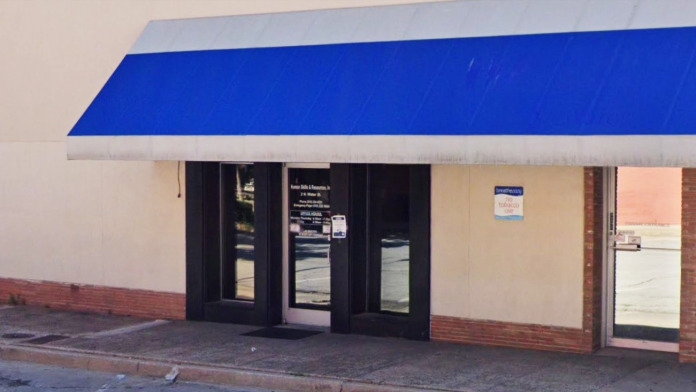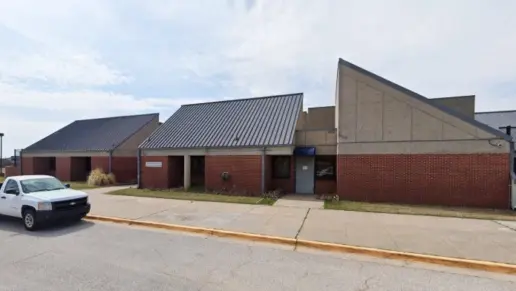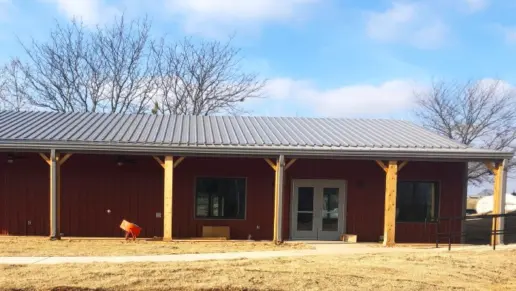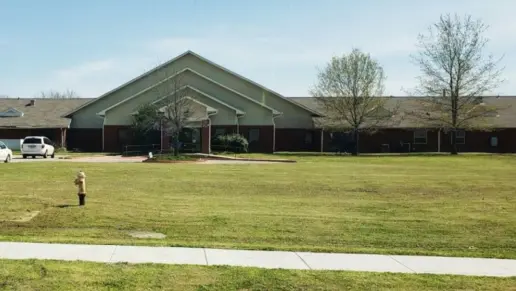The people of Human Skills and Resources are friendly and nice, they offer excellent services, if you want to get real help you have to visit this place because it is really useful.
About Human Skills and Resources
Human Skills and Resources is a comprehensive outpatient community addiction recovery facility in Sapulpa, Oklahoma. They serve individuals and families affected by mental health or substance use disorders. Their program options primarily include general outpatient and intensive outpatient care. Both involve evidence based practices that facilitate recovery support, skill building and healing in a community setting. These programs are also highly flexible since you can receive therapy while maintaining your work or academic routine.
Intensive outpatient care is more structured and involves more therapy sessions. At minimum you’ll attend nine hours of group therapy weekly and two hours of individual psychotherapy monthly. In contrast, their general outpatient program includes two group sessions weekly along with two individual psychotherapy sessions monthly. These programs offer individual, group and family psychotherapy. Individual and group rehabilitative treatment are also part of the services. This treatment focuses on helping you regain health and function.
Other outpatient services include assessment/treatment planning, case management and crisis intervention. They even deliver medication clinic services and ambulatory detox. This detox doesn’t involve 24/7 monitoring and is ideal for people with less severe withdrawal symptoms.
Their outpatient care even incorporates medication assisted treatment. This is available as a stand alone program for those dependent on opioid pain medication while participating in outpatient recovery. The program uses buprenorphine to manage withdrawal and is closely supervised by a licensed physician. You’ll also be monitored via drug testing, urinalysis and pill count. This helps the care team identify and discourage misuse or diversion of the medications. The program lasts four to six months, but you may receive maintenance treatment if medically indicated.
The facility delivers various other programs for individuals involved with the criminal justice system. They’re certified to provide ADSAC assessments and DUI school programs. These programs help you address your substance use, learn safe driving practices and prevent reoffending, all while fulfilling the legal requirements for the reinstatement of your license. They also offer court ordered screening/evaluation, supervision and urinalysis or drug testing. Other programs include anger management training, relapse prevention and life skills development.
The facility may accept Medicaid for their services. Comments from past clients reflect an overall positive experience and quality of care.
Latest Reviews
Rehab Score
Gallery

Location
Other Forms of Payment
Medicaid is a state based program that helps lower-income individuals and families pay for healthcare. Medicaid covers addiction treatment so those enrolled can use their coverage to pay for rehab. When a program accepts Medicaid the client often pays very little or nothing out of their own pocket.
Private insurance refers to any kind of healthcare coverage that isn't from the state or federal government. This includes individual and family plans offered by an employer or purchased from the Insurance Marketplace. Every plan will have different requirements and out of pocket costs so be sure to get the full details before you start treatment.
Self-pay involves paying for treatment out of your own pocket. You can use savings or credit, get a personal loan, or receive help from family and friends to fund your treatment. If you don't have insurance or your insurance plan doesn't cover a specific program, self-pay can help ensure you still get the care you need.
Addiction Treatments
Levels of Care
Treatments
The goal of treatment for alcoholism is abstinence. Those with poor social support, poor motivation, or psychiatric disorders tend to relapse within a few years of treatment. For these people, success is measured by longer periods of abstinence, reduced use of alcohol, better health, and improved social functioning. Recovery and Maintenance are usually based on 12 step programs and AA meetings.
To address the issues of addiction, each drug rehab in Oklahoma is tailored to meet the individual's needs. Treatment may occur in a residential or outpatient setting, and may last from a few days to several months.
Many of those suffering from addiction also suffer from mental or emotional illnesses like schizophrenia, bipolar disorder, depression, or anxiety disorders. Rehab and other substance abuse facilities treating those with a dual diagnosis or co-occurring disorder administer psychiatric treatment to address the person's mental health issue in addition to drug and alcohol rehabilitation.
Opioid rehabs specialize in supporting those recovering from opioid addiction. They treat those suffering from addiction to illegal opioids like heroin, as well as prescription drugs like oxycodone. These centers typically combine both physical as well as mental and emotional support to help stop addiction. Physical support often includes medical detox and subsequent medical support (including medication), and mental support includes in-depth therapy to address the underlying causes of addiction.
Substance rehabs focus on helping individuals recover from substance abuse, including alcohol and drug addiction (both illegal and prescription drugs). They often include the opportunity to engage in both individual as well as group therapy.
Programs




Clinical Services
If you participate in cognitive behavioral therapy in Oklahoma, you can expect to attend somewhere between five and 20 sessions. This short term method is an effective way to learn healthy coping strategies that help you change your thinking and behavior patterns.
Group therapy is any therapeutic work that happens in a group (not one-on-one). There are a number of different group therapy modalities, including support groups, experiential therapy, psycho-education, and more. Group therapy involves treatment as well as processing interaction between group members.
Individual therapy in Oklahoma offers men and women customized care that's tailored to their specific needs for drug and alcohol addiction treatment. This can include interventions that promote self discovery, develop coping skills, or uncover the underlying causes of addictive behavior.
Motivational interviewing may be used on its own or in conjunction with other treatment approaches. It is designed as a mode of communication rather than an intervention. It involves asking questions, listening, and encouraging clients to come to their own conclusions and feel empowered to make changes in their lives.
Trauma therapy addresses traumatic incidents from a client's past that are likely affecting their present-day experience. Trauma is often one of the primary triggers and potential causes of addiction, and can stem from child sexual abuse, domestic violence, having a parent with a mental illness, losing one or both parents at a young age, teenage or adult sexual assault, or any number of other factors. The purpose of trauma therapy is to allow a patient to process trauma and move through and past it, with the help of trained and compassionate mental health professionals.
Couples therapy often focuses on a specific problem, such as addiction, intimacy, jealousy, or finances. Treatment is solution focused and change oriented. The couple works with the therapist to identify goals for therapy and actively participates in learning skills and behaviors to reach those goals.
Family therapy offers a safe space for family members to openly talk about their feelings and the challenges that addiction has triggered. This process helps to improve their understanding of the disease of addiction and supports the family's unified approach to the recovery journey.
Research has shown that nicotine replacement therapy increases your chances of quitting smoking. It works by providing controlled amounts of nicotine, which you can reduce over time, to wean yourself off tobacco without suffering from extreme withdrawals and cravings.
Staff & Accreditations
Staff
CEO
Medical Director
Human Resources Director
Accreditations

The Commission on Accreditation of Rehabilitation Facilities (CARF) is a non-profit organization that specifically accredits rehab organizations. Founded in 1966, CARF's, mission is to help service providers like rehab facilities maintain high standards of care.
CARF Accreditation: Yes
Contact Information
2 North Water Street
Sapulpa, OK 74066


